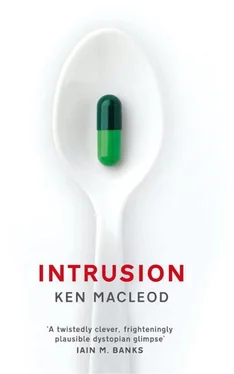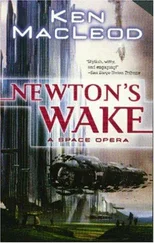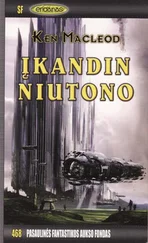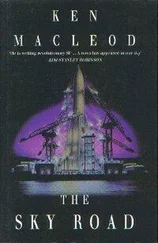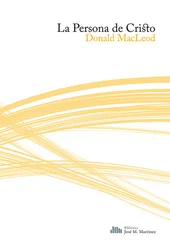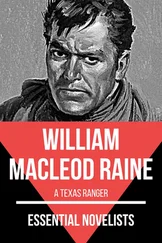Lots to be getting on with.
And yet, and yet… she couldn’t, now, revisit the texts or her own preliminary theoretical notes and queries without seeing, like barbed wire woven through a flowery, fecund trellis, the actual functioning of those theories and texts, as explained to her by the estimable Dr Estraguel, as well as the point that had been brought sharply to her attention by the ministrations of the police. She had lost the taste for theory; in fact, thinking about it nauseated her, quite literally: it gave her actual physical nausea. Rereading the notes she’d written when the project had been all shiny and new and exciting, on the other hand, merely made her want to cry.
The cause that she’d taken up in dogged retaliation for her enhanced interrogation and in expiation of her earlier unwitting and recent coerced complicity in the whole system of ideological and physical repressive apparatuses – her support for Hope Morrison – that too had lost its savour. It had run into the sand last week, when Hugh Morrison had dismissed her suggestion for how to get his wife off the hook. She’d tried calling him, but his phone had given her an even more unceremonious brush-off. She was thinking of somehow getting around that, of appealing to Hope directly, over her husband’s head or if necessary behind his back, just in case he was standing in the way of or distorting the truth about what Hope might herself seize on as the exact solution she was looking for, her get-out-of-jail free card, and would jump for joy and weep with gratitude on Geena’s shoulder for its delivering.
Geena indulged this rescue fantasy for the minute or so it took her to recognise it as a rescue fantasy, then dismissed it. She took a certain grim satisfaction in her own lucidity and self-awareness, and then went back to wondering why she was depressed. She went through again all the possible grounds she might have for feeling down.
No. No rational reason whatsoever. She really should get a grip on herself.
On top of everything else, there was now a diffuse pain in her midriff, which had been growing for half an hour and was now becoming difficult to ignore. Perhaps she was going down with something, and that was why she felt so unaccountably depressed and listless and why her stomach hurt. She was about to bestir herself to look up summer-flu symptoms when she heard behind her an apologetic cough.
She turned, almost falling off her stool, and saw Joe standing a few paces away, clutching a pad and looking at her with sympathy and concern. The lab was otherwise empty, the work table littered with sandwich containers and cardboard cups lipped with drying soup.
‘Are you all right?’ Joe asked.
‘Yes, I’m fine, thanks,’ Geena said.
‘You don’t look fine.’
‘Oh!’ Geena gave a shaky laugh. ‘I missed lunchtime, because I was so wrapped up in… my thoughts, and I’m hungry – that’s what’s the matter with me.’
‘Oh,’ said Joe. ‘In that case, would it not be a good idea to go to the canteen? Everyone else has had their lunch and gone out to catch the sun.’
‘Why didn’t they invite me?’
Now she was feeling paranoid, as well as depressed and (now that the pain had been identified, thankfully) absolutely starving.
‘You seemed preoccupied, and the guys thought it best—’
‘They discussed this?’
‘Yes,’ said Joe.
‘Jeez.’ Geena stood up. ‘I must have been, as you say, preoccupied. Let’s go.’
The canteen was still busy, clattering with cutlery and abuzz with talk. Geena chose a sandwich and soup, Joe a slice of meat with two veg. He noticed her puzzled look.
‘Synthetic,’ he said.
Glancing at the plate, she saw that the slice had a most unnatural pattern, an intricate imbrication of different colours and textures, like a cross-section through a vertebrate thorax.
‘Hmm,’ said Geena. She knew vegans – Maya for one – who wouldn’t eat synthetic meat, because… well, there was an animal cell somewhere in its ancestry, and anyway it was cheating. Evidently Joe’s (presumed) Buddhism drew different lines.
‘I have a question,’ he said, after they’d found a vacant table and sat down facing each other. ‘Have you had any results with… the phenotype of that interesting gene?’
Geena shook her head, munching. She swallowed and said: ‘Well, kind of. He was aggressively uninterested. Insisted he didn’t have anything unusual about his vision. Then he blurted out that the gene must be recessive.’
Joe carefully cut a square inch of synthetic meat and slid it around in gravy.
‘How would he know that?’
‘He seemed to assume it was connected with a superstition some people in the north of this country have about, well, a hereditary capacity for, uh, precognition and other so-called psychic powers.’
Geena felt a little embarrassed even talking about it.
‘That’s interesting,’ said Joe. ‘I have something to show you. Perhaps after we have eaten.’
To her surprise, he didn’t take her back to the lab to show her. Instead, over coffee, he took out his pad and doodled with a fingertip.
‘Take a look.’
She put on her glasses and made the connection. It was the same sim as he’d run before, but this time, instead of showing a response to photons, a different sequence took place. A shimmering wave propagated up through the opsin sheet, and in turn sparked an expanding shower of photons. Almost but not quite at the same moment, a massive particle slammed through the display, in a downward direction.
‘What’s going on here?’ Geena asked.
‘A few months ago,’ said Joe, ‘there was a piece about tachyon detection in a rhodopsin suspension. Some contested results at CERN…’
‘I remember,’ said Geena. ‘In The Economist , wasn’t it? I caught it in the trawl.’
‘Uh-huh,’ said Joe. ‘After our discussion last week I ran some searches on any recent work on rhodopsin, and came across the same thing. Dug up the original paper – it has to do with cosmic rays – you know, high-velocity particles, from—’
Geena nodded. ‘I know what cosmic rays are.’
Joe smiled. ‘The tachyons scatter before the charged particle that causes them arrives… well, that’s one way of looking at it. Anyway, I ran a sim on the same event, but using the actual functioning rhodopsin in the retina, and… that’s the result. You only get it, though, with your mutant rhodopsin.’
‘So how did they get it at CERN? Were they using mutant rhodopsin?’
Joe shook his head. ‘No, they were using a suspension of normal rhodopsin. I guess it must be the physical arrangement that makes the difference – the molecules of normal rhodopsin would be much farther apart.’
He leaned back and sipped coffee. ‘The trouble is, of course, that the results are contested, haven’t been replicated, there’s a serious doubt that they detected tachyons in the first place… you know how it is.’
Geena grinned mischievously. ‘You mean, the science hasn’t been socially constructed?’
‘That is one way of putting it,’ said Joe. ‘Not the way I would.’
‘It’s all right, I’m just teasing. What’s the connection with what we’ve been talking about?’
‘Tachyons,’ said Joe, ‘move faster than light. Which means they move backwards in time.’
He said this with the sort of self-satisfied expression Geena was all too used to seeing from the guys when they thought they’d given her an explanation.
‘Yes? And?’
‘It could be a physical basis for precognition.’
Geena looked away, looked around. The canteen was emptying. Its big windows showed the strip of green grass in the sunlight outside, and the wall, and the blue sky above it. The whole conversation seemed utterly unreal.
Читать дальше
